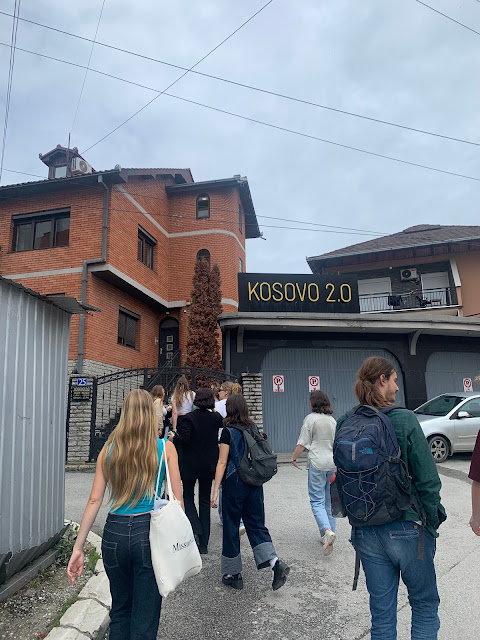By Levin Stamm
“Speaking Serbian has saved my life at least three times.” It was a remarkable quote by Zana Hoxha, founder and executive director of the Femart Festival. And it seemed powerful enough to seemingly answer all of our questions that we had on the importance of bilinguality in Kosovo’s past, present and future. So we thought; until we visited the offices of Kosovo 2.0 the same day in the afternoon. At least when it comes to the present and future, opinions in Kosovo seem divided.
Hoxha grew up in Gjakova, a town in the middle of Prizren and Peja with now 40,000 inhabitants. She spent her childhood playing with same-aged children of Serbian, Roma and Turkish neighbours in the eighth-floor block her family lived in. “A lot of space for exchange,” she reminisces. It would shape her work and vision for Kosovo to this day.
Studying Serbo-Croatian starting from second grade, Hoxha spent a good part of her school years in the parallel shadow education system that existed in the 1990s after Albanian students and teachers were barred from the existing school system that was now exclusively taught in Serbian.
After the war ended, Hoxha made a living as a translator. Soon she realised that by translating, she was collecting stories of the war and stories of human rights abuses. To understand the other, to really collectively reflect on the pain that Kosovo had gone through in the war period, speaking each other’s language was essential, she realised. “But peace has never really been on people’s agenda,” she notes and hints at the fact that the Kumanovo agreement had never been much more than a ceasefire.
She also had to realise, however, that the Yugoslav polyglotism the international community had once admired at the 1984 Winter Olympics in Sarajevo, was a thing of the past. “Many youngsters in Pristina have throughout their childhood been exposed to narratives – which I don’t necessarily dispute – about what the Serbs have done during the war.” As a consequence, the desire to look into Serbs’ language is low.
For Kosovo in particular, which is home to the youngest population on the European continent, it means that Kosovo Albanians' and Serbs’ ability to communicate in each other’s mother tongue continuously decreases.
“But they can speak English together,” says Daniel Petrick, Kosovo 2.0’s senior editor. He brings forward the argument that there are simply no “structural reasons” that would entice youth from either community to learn each other’s language. In daily life, there would be no need for the two communities to interact, Petrick argues. Petrick and Editor-in-Chief Besa Luci state that one-quarter of the staff speak both Albanian and Serbian.


No comments:
Post a Comment